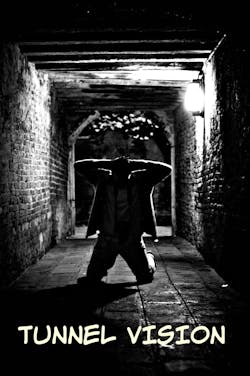What began as research regarding how the human brain handles competing demands for attention, morphed into an excellent explanation of tunnel vision and auditory exclusion during stressful LE encounters—thanks to the diligence of the Force Science Institute.
A study led by Dr. Steven Yantis at the prestigious Johns Hopkins University Department of Psychological and Brain Sciences, resulted in some surprising discoveries regarding how our brains react to multiple stimuli and stress. Observing adults ages 19-35 in a lab setting as they viewed changing computer displays of multiple numbers and letters, and as they listened to three voices simultaneously speaking numbers and letters, created a scenario many people encounter daily.
Reviewing the captured brain activity during the exposure, researchers found when the adults focused on the visual tasks like tunneling in on the computer screen, the auditory stimuli recorded decreased significantly. Conversely, when the subjects’ attention focused on the spoken messages, the visual image activity diminished.
According to Yantis and the researchers, “When attention is deployed to one modality, it necessarily extracts a cost on another modality. The brain can’t simultaneously give full attention to both.” View the video of the study here: http://www.jhu.edu/news_info/news/audio-video/brain.html
The results of Yantis’ research were applied to explain why cell phone conversations while driving can be catastrophic. His study explains why listening and talking on a cell phone diminishes one’s capacity to react quickly to things changing rapidly on the road in front of us.
Dr. Bill Lewinski saw the value of this study, vis-à-vis its application during deadly force confrontations. He opined the results explain why officers often report they never heard their weapons fire during a shooting, or never heard a partner shout a warning to them. The research further clarifies why an officer may not see everything during a shooting, such as bystanders or even fellow officers. Tunnel vision and auditory exclusion are real and dangerously impact the way officers do their job.
Another important development of this groundbreaking research is the ability to use scientifically the results as a potential defense at criminal and civil trials. Our litigious society has exploded with lawsuit after lawsuit claiming excessive use of force and/or negligent behavior on the part of an officer.
Another research project, this one in Utah, dealt with subjects talking on a cell phone while operating a driving simulator. Focused on measuring reaction time, the study found when listening to something, e.g. a cell phone, one’s reaction to a sudden development such as brake lights in front of you is significantly lower.
Once again, Dr. Lewinski saw a parallel in this study to law enforcement. Distractions can be varied, and if you’re concentrating on a particular thing in your field of vision you may not pick up on other things you’re not concentrating on. “For example, if you are intently watching a suspect’s right hand because you think he might produce a weapon there and instead he comes up with a weapon in his left hand, your reaction time will be significantly impaired,” Lewinski said.
The research also points out the danger an officer faces when dealing with multiple subjects. Since you can only focus effectively on one thing at a time, you may miss a threat, or if you do see the threat, your reaction may be delayed. Falling further behind the power curve can have deadly results.
If you’d like more in depth information regarding the studies listed above, follow this link: http://www.forcesciencenews.com/visuals/newdev.pdf
Stay Safe, Brothers and Sisters!
About the Author
John Wills
John M. Wills is a former Chicago police officer and retired FBI agent. He is a freelance writer and award-winning author in a variety of genres, including novels, short stories and poetry. John also writes book reviews for the New York Journal of Books, and is a member of the National Book Critics Circle. His new book, The Year Without Christmas, is available now. Visit John at: www.johnmwills.com.

